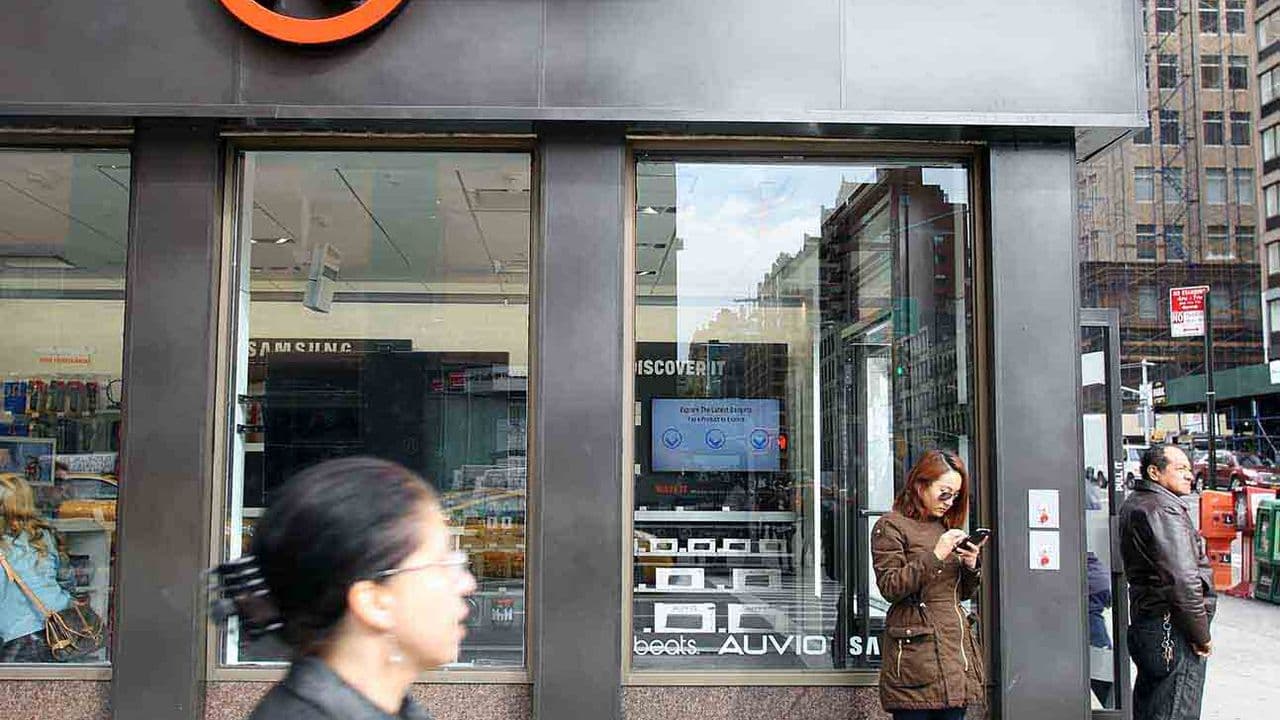The writing has been on the wall for RadioShack for years now, but this morning trading of the retail chain’s stock was halted, frozen at a price of about 77 cents per share. At its peak, in December 1999, that stock price closed at $78.50 per share. When trading resumed just before 3 p.m. EST, the .....
The writing has been on the wall for RadioShack for years now, but this morning trading of the retail chain’s stock was halted, frozen at a price of about 77 cents per share. At its peak, in December 1999, that stock price closed at $78.50 per share. When trading resumed just before 3 p.m. EST, the share price plummeted further to as low as 59 cents per share.
The trading stoppage followed
a claim made public by Salus Capital, one of the hedge funds listed as RadioShack’s major lenders, that the electronics store chain breached covenants on a $250 million term loan it agreed to in early October, when it
brought on Harry Wilson as its “chief revitalization officer." RadioShack plans to “vigorously contest” Salus Capital’s allegations, and even if the chain is successful and gets to implement restructuring moves like closing hundreds of stores, any hopes of a turnaround really seem likely to fall short.
RadioShack has many problems, not the least of which is that it’s an overbuilt system dependent upon costly real estate when most consumers prefer to buy their electronics online or at one of its bigger competitors. But the most telling challenge for RadioShack, to me anyway, is its employee morale problem.
For the past several years, RadioShack has appeared on the “America’s Worst Companies to Work For” list, produced by 24/7 Wall St. and Glassdoor.com.
In the 2014 report, the 1,255 Glassdoor reviews for RadioShack produced the 11th-lowest employee satisfaction score of the country’s largest companies. Those respondents gave CEO Joseph Magnacca an approval rating of only 46 percent.
According to the report, most reviews noted poor benefits and low wages among hourly employees, as well as longer hours for managers that did not result in enough of a pay increase. This past Thanksgiving, RadioShack’s perceptions as an employer took another hit, as the brand was criticized for requiring its staff to work during the holiday for little apparent benefit.
Los Angeles Times columnist Michael Hiltzik noted that “nickel-and-diming of the workforce is another artifact of a company in its death throes” when describing RadioShack’s decision to stay open from 8 a.m. to midnight on Thanksgiving. He also cited the
firsthand account from a former RadioShack employee about how horrific working for the brand, especially on Black Friday, can be.
Who knows which came first, the failing company in a death spiral or the too-low-for-zero morale of its staff? Big-box electronics retailers like RadioShack and Best Buy have struggled for years, and Circuit City already folded for good when its customers moved in droves to online retailers like Amazon.com. There were plenty of structural disadvantages in play, which very likely led to unsustainable changes to the business model that made for very unhappy employees.
But if anything is to be learned here about employer-employee relations, perhaps it is helpful to look at another big-box retailer winning in a competitive segment but still known for satisfied employees: Costco. The wholesaler made 24/7 Wall St.’s companion list, “America’s Best Companies to Work For,” at No. 22 this year, keeping pace with culture-obsessed tech companies like Google. Costco reviewers gave CEO Craig Jelinek a 92-percent approval rating.
The article quotes Costco’s website, which reads: “We are a membership warehouse club, dedicating to bringing our members the best possible prices on quality brand-name merchandise. … We believe great customer service starts with great employees, who enjoy what they do. That’s why we hire the best people and pay them the best wages in the industry.”
Costco also is held up every year as an example of major retailers going against the grain and
staying closed on Thanksgiving Day.
Treatment of employees isn’t the only factor to explain RadioShack’s difference in performance from Costco, but it’s a big one, and likely an instructive one. The electronics chain might be able to cut stores and restructure its way to some semblance of profitability, but without engaged employees who have a sense of purpose when the go into work, the brand has no shot of growing stores at the unit level. I take no pleasure in being the latest person to write this, but RadioShack might not make it long enough to try out a new approach to hiring and managing people.













